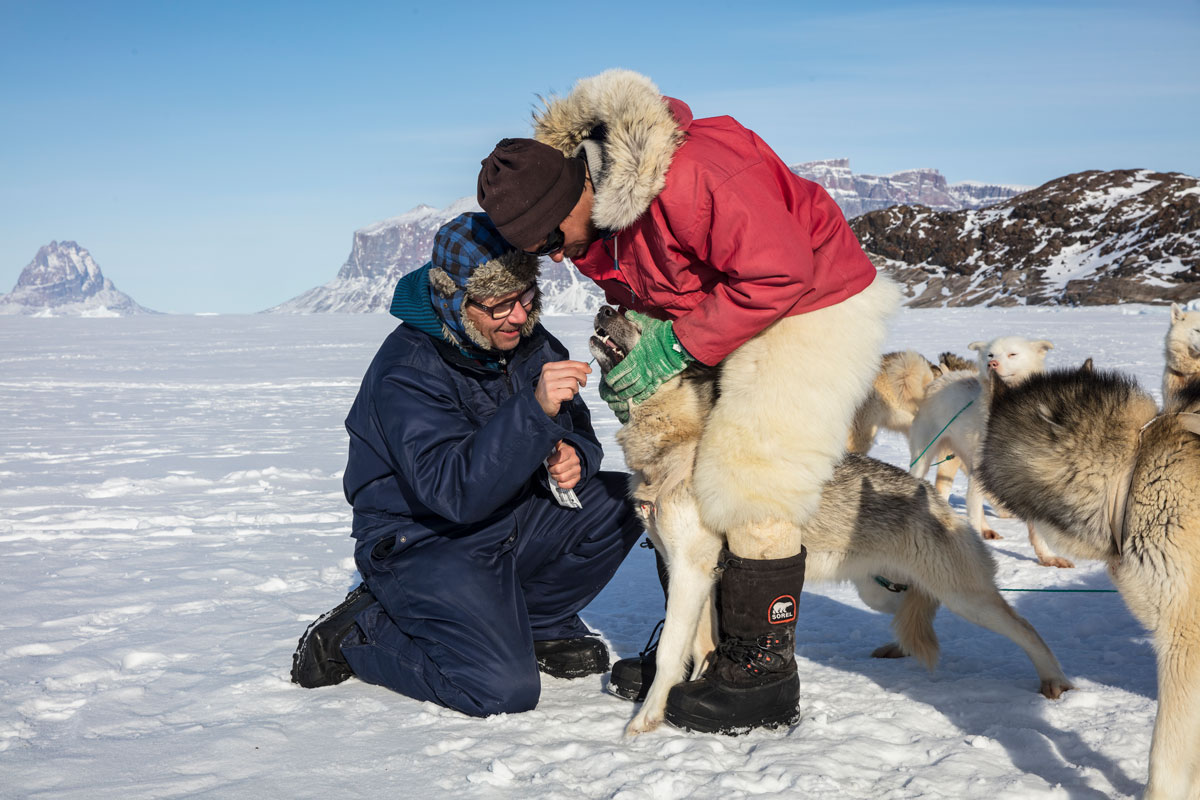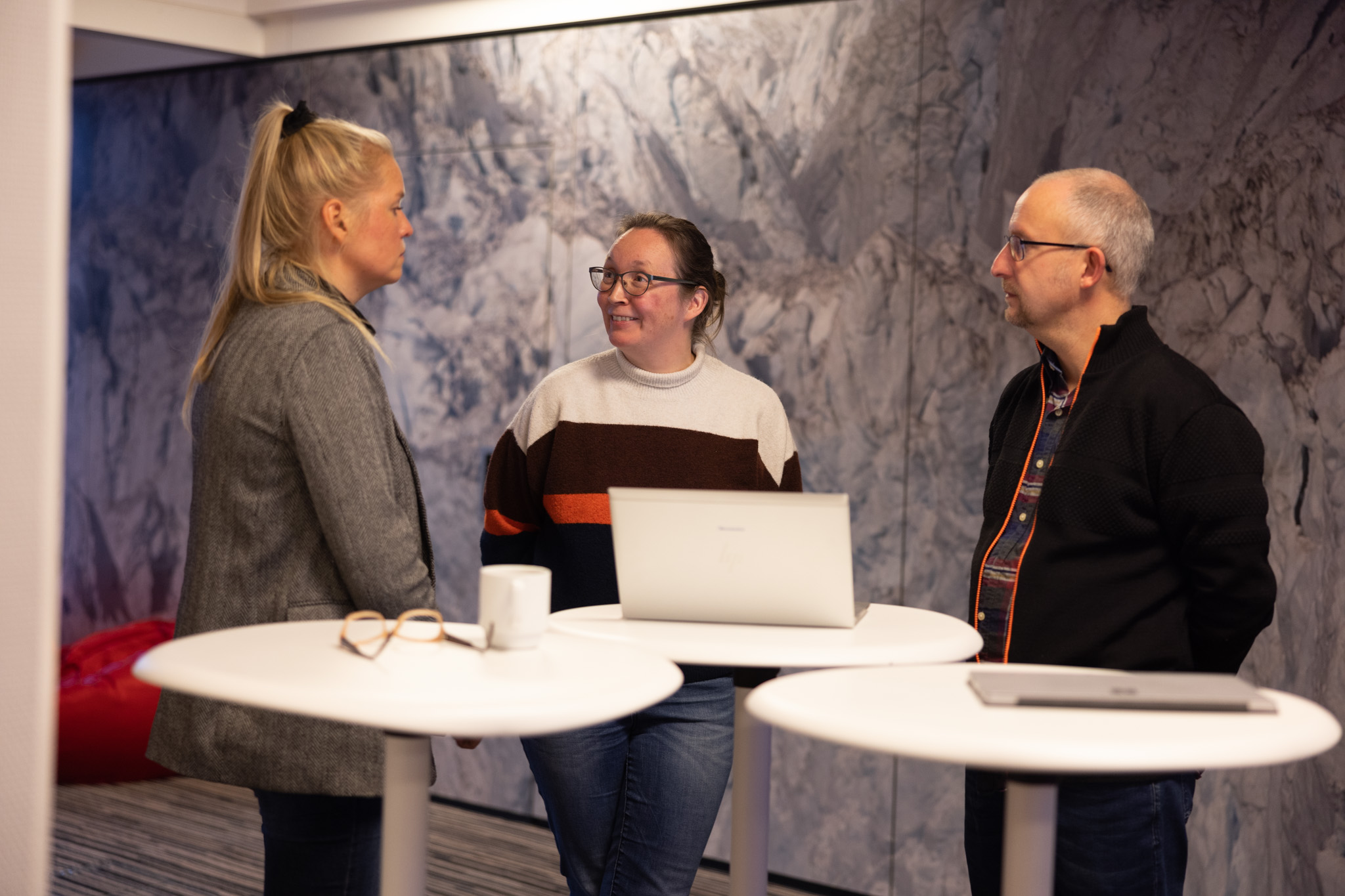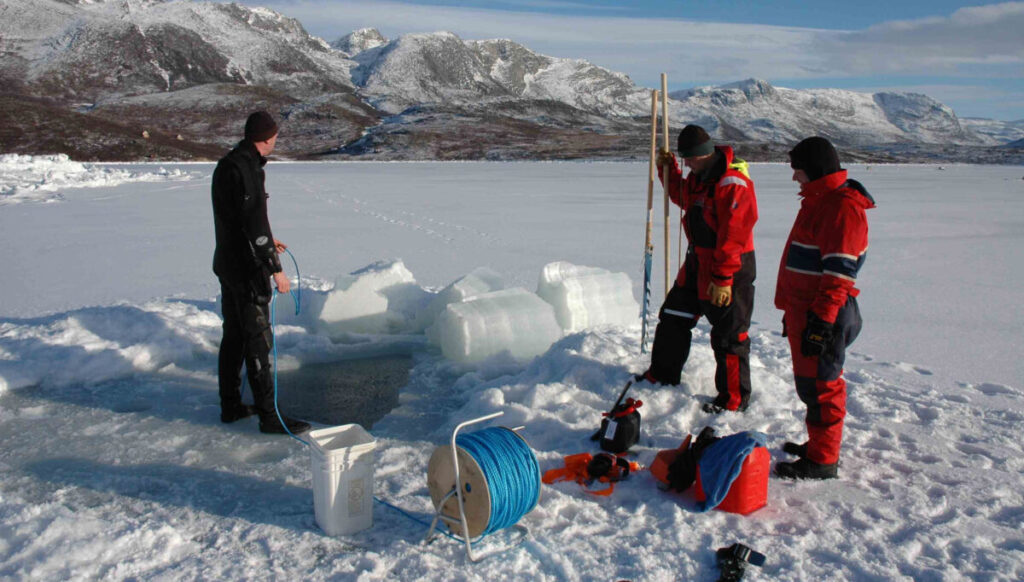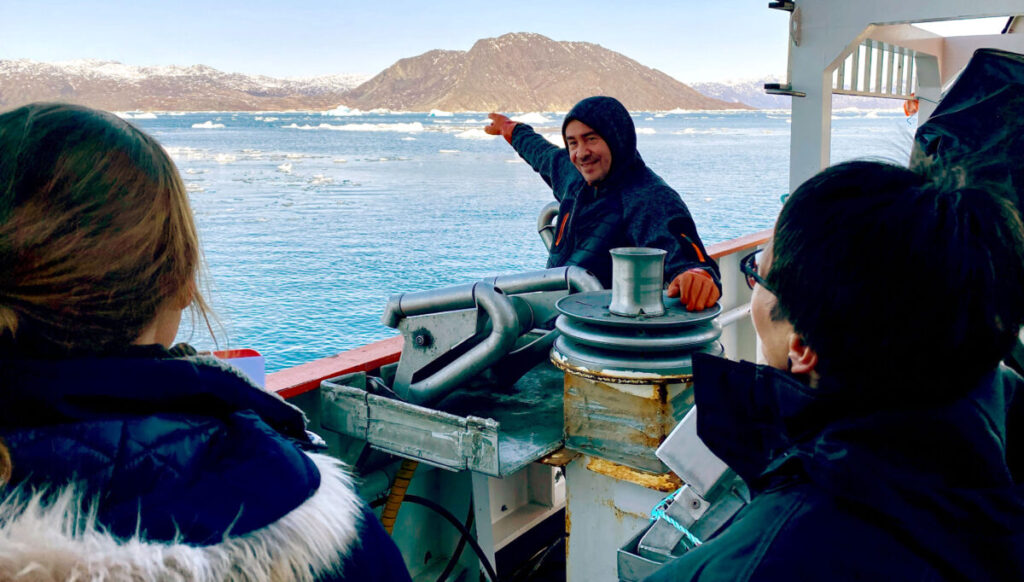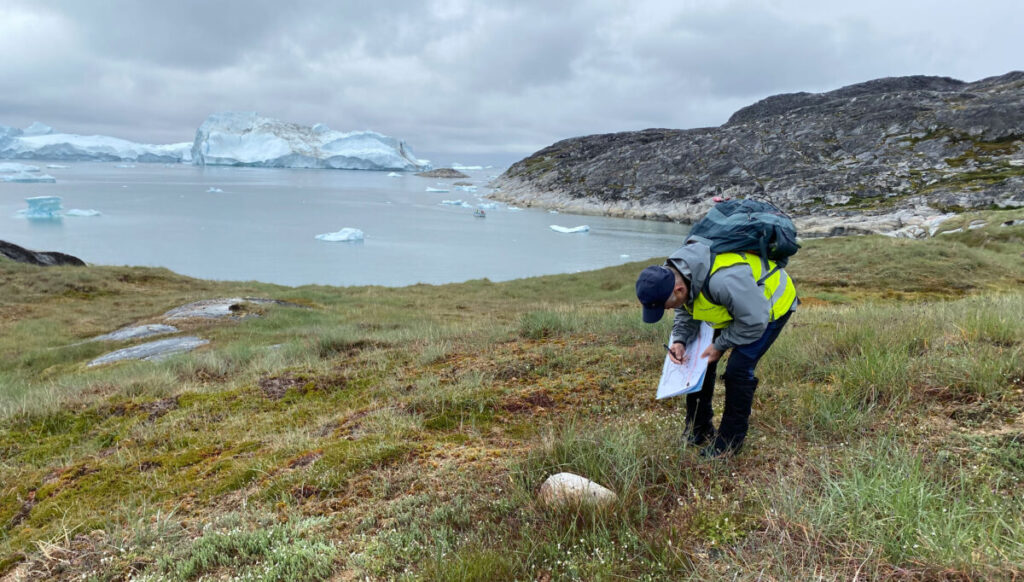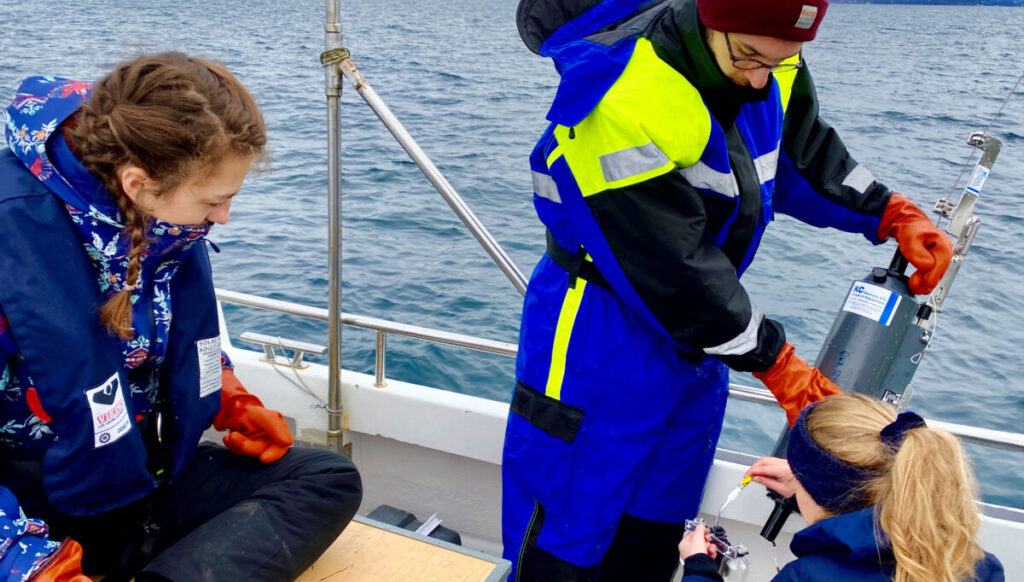Please make yourself known to our local research institutions. First, you should know Ilisimatusarfik – The University of Greenland, and Pinngortitaleriffik – Greenland Institute of Natural Resources, as they are Greenland’s two biggest research institutions.
Visit our guide to find an overview of local research institutions and, as well as other organizations financing research in Greenland.
Furthermore, Greenland Research Council (NIS) works to promote research in Greenland. UArctic also provides you with information about research institutions and stations in Greenland.
Our experience shows that it is essential to include local partners at an early stage of your project to ensure high quality of your collaboration & local engagement. Most institutions prefer to be involved early in the process, as to having an impact on the research design as well as practical aspects of the project.
Contacting local partners just before finalizing your project proposal shows a low success rate.
